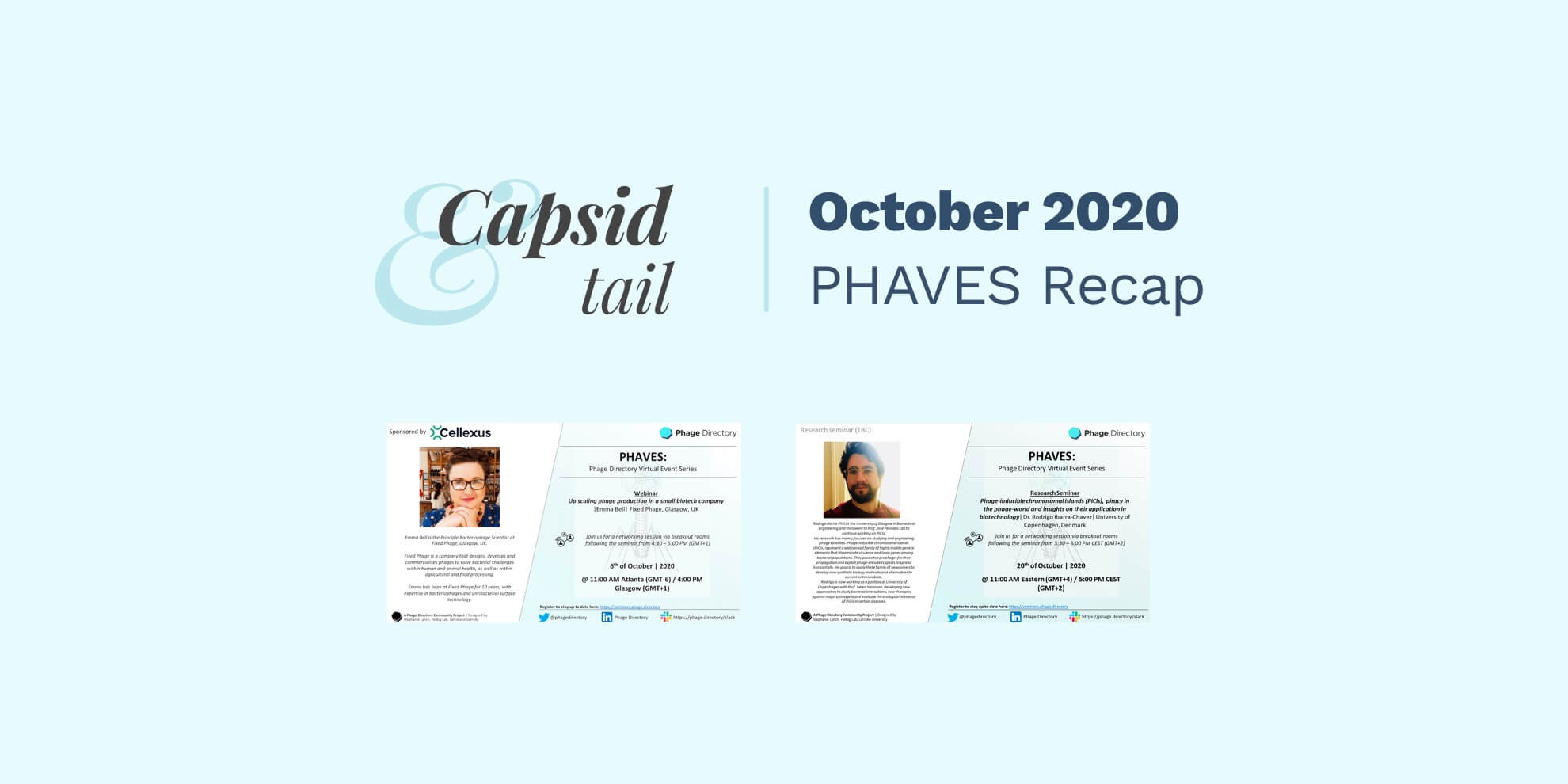Adaptive Phage Therapeutics (APT) has received Orphan drug designation from the FDA for the use of its PhageBank™ (a continually expanding library of phages) to treat prosthetic joint infections. APT will now be eligible for seven years of U.S. market exclusivity upon FDA approval, will pay less in marketing application fees, will be exempt from performing clinical studies in pediatric patients, and will receive tax credits that reduce clinical development costs.
The FDA has authorized Armata Pharmaceuticals to initiate a phase 1b/2a clinical trial, which they are calling “SWARM-P.a.”, to test AP-PA02, its lead phage cocktail candidate, against Pseudomonas aeruginosa airway infections in cystic fibrosis patients. The trial should begin by the end of 2020.
Vivek Mutalik (Lawrence Berkeley National Lab) and colleagues published their method of high-throughput mapping of the phage resistance landscape in E. coli in PLoS Biology. Sound familiar? We highlighted this paper’s corresponding preprint and backstory in August 2020 in Issue 88 of Capsid & Tail, in which Rohit Kongari interviewed Vivek. Sadly, this was also Dr. Richard Calendar’s final paper (see Community section for additional remarks).
As there is currently no gold standard for developing a phage cocktail, Melissa Haines (University of Leicester, UK) and colleagues set out to describe a novel approach to phage cocktail development by comparing different methods side by side. They found that for phages targeting ESBL-producing E. coli and Klebsiella UTI isolates, planktonic killing assays were as effective as efficiency of plating assays, while being much less time consuming.
Before now, only eight phages and two archaeal viruses had been isolated from deep sea vents. Sarah Thiroux (Université de Bretagne Occidentale, France) and colleagues published a new paper describing another: the first head‐tailed virus infecting hyperthermophilic methanogenic deep‐sea archaea. The virus infects Methanocaldococcus species, and infection leads to continuous release of virions, rather than a drop in host growth.
Eveline-Marie Lammens (KU Leuven) and colleagues published a new perspective in Nature Communications that explores the synthetic biology potential of phages for engineering non-model bacteria.






